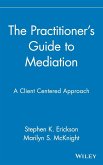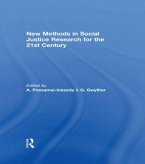Elizabeth Stanko (ed.)Methodology and Measurement
Researching Violence
Methodology and Measurement
Herausgeber: Lee, Raymond M; Stanko, Elizabeth A
Elizabeth Stanko (ed.)Methodology and Measurement
Researching Violence
Methodology and Measurement
Herausgeber: Lee, Raymond M; Stanko, Elizabeth A
- Gebundenes Buch
- Merkliste
- Auf die Merkliste
- Bewerten Bewerten
- Teilen
- Produkt teilen
- Produkterinnerung
- Produkterinnerung
A practical guide to, and demonstration of, the ingenious and courageous actions of researchers in this sensitive area, this key text investigates the ethical and emotional issues arising from working with the victims and perpetrators of violence.
Andere Kunden interessierten sich auch für
![Domestic Violence Against Men and Boys Domestic Violence Against Men and Boys]() Domestic Violence Against Men and Boys160,99 €
Domestic Violence Against Men and Boys160,99 €![Unmasking the Sexual Offender Unmasking the Sexual Offender]() Veronique N ValliereUnmasking the Sexual Offender153,99 €
Veronique N ValliereUnmasking the Sexual Offender153,99 €![The Psychology of Honor Abuse, Violence, and Killings The Psychology of Honor Abuse, Violence, and Killings]() Roxanne KhanThe Psychology of Honor Abuse, Violence, and Killings181,99 €
Roxanne KhanThe Psychology of Honor Abuse, Violence, and Killings181,99 €![The Practitioner's Guide to Mediation The Practitioner's Guide to Mediation]() Stephen K EricksonThe Practitioner's Guide to Mediation77,99 €
Stephen K EricksonThe Practitioner's Guide to Mediation77,99 €![Strengthening Systems to Prevent Intimate Partner Violence and Sexual Violence Strengthening Systems to Prevent Intimate Partner Violence and Sexual Violence]() Strengthening Systems to Prevent Intimate Partner Violence and Sexual Violence181,99 €
Strengthening Systems to Prevent Intimate Partner Violence and Sexual Violence181,99 €![New Methods in Social Justice Research for the Twenty-First Century New Methods in Social Justice Research for the Twenty-First Century]() New Methods in Social Justice Research for the Twenty-First Century179,99 €
New Methods in Social Justice Research for the Twenty-First Century179,99 €![Offending Identities Offending Identities]() Kirsty HudsonOffending Identities172,99 €
Kirsty HudsonOffending Identities172,99 €-
-
-
A practical guide to, and demonstration of, the ingenious and courageous actions of researchers in this sensitive area, this key text investigates the ethical and emotional issues arising from working with the victims and perpetrators of violence.
Produktdetails
- Produktdetails
- Verlag: Taylor & Francis
- Seitenzahl: 254
- Erscheinungstermin: 28. November 2002
- Englisch
- Abmessung: 246mm x 157mm x 19mm
- Gewicht: 503g
- ISBN-13: 9780415301312
- ISBN-10: 0415301319
- Artikelnr.: 21440836
- Herstellerkennzeichnung
- Libri GmbH
- Europaallee 1
- 36244 Bad Hersfeld
- gpsr@libri.de
- Verlag: Taylor & Francis
- Seitenzahl: 254
- Erscheinungstermin: 28. November 2002
- Englisch
- Abmessung: 246mm x 157mm x 19mm
- Gewicht: 503g
- ISBN-13: 9780415301312
- ISBN-10: 0415301319
- Artikelnr.: 21440836
- Herstellerkennzeichnung
- Libri GmbH
- Europaallee 1
- 36244 Bad Hersfeld
- gpsr@libri.de
Raymond M Lee is Professor of Social Research Methods at Royal Holloway, University of London. Elizabeth A. Stanko is Professor of Criminology at Royal Holloway, University of London, and Director of the ESRC Violence Research Programme.
Introduction Elizabeth A. Stanko and Raymond M. Lee Part 1: Documenting
Violence: Counting and accounting for violence 1. Researching Violence in
the Past: Quantifiable and Qualitative Evidence John E. Archer 2. Putting
the Conflict Tactics Scale in Context in Violence from Parent to Child
Susan Creighton, Deborah Ghate, Neal Hazel, Julia Field and Steven Finch 3.
Researching Homicide: Methodological issues in the exploration of lethal
violence R. Lewis, K. Cavanagh, R. E. Dobash, R. P. Dobash Part 2:
Enhancing Data on Violence 4. Tracking the Pathways to Violence in Prison
Kimmett Edgar, Carol Martin and Ian O'Donnell 5. Dilemmas of Control:
Methodological implications and reflections of foreground in children's
perspectives on violence Christine Barter and Emma Renold 6. Safety Talk,
Violence and Laughter: Methodological implications and reflections on focus
groups in violence research Leslie J. Moran, Beverley Skeggs, Paul Tyrer
and Karen Corteen 7. Researching Violence: Power, social relations and the
virtues of the experimental method Mark Levine 8. The Rising Tide of Female
Violence? Researching girls' own understanding and experiences of violent
behaviour E. Kay M. Tisdall Part 3: The Impact of Institutional Contexts
for the Study of Violence 9. Fear of Reprisal: Researching intra-communal
violence in Northern Ireland and South Africa Colin Knox and Rachel
Monaghan 10. Veiling Violence: The impacts of professional and personal
identities in the disclosure of work-related violence Maria O'Beirne, David
Denney, Jonathan Gabe, Mary Ann Elston, and Raymond M. Lee 11. Researching
Domestic Violence in a Maternity Setting: Problems and pitfalls Lorraine
Bacchus, Gill Mezey and Susan Bewley 12. Racist Violence from a Probation
Service Perspective: Now you see it now you don't Larry Ray, David Smith
and Liz Wastell
Violence: Counting and accounting for violence 1. Researching Violence in
the Past: Quantifiable and Qualitative Evidence John E. Archer 2. Putting
the Conflict Tactics Scale in Context in Violence from Parent to Child
Susan Creighton, Deborah Ghate, Neal Hazel, Julia Field and Steven Finch 3.
Researching Homicide: Methodological issues in the exploration of lethal
violence R. Lewis, K. Cavanagh, R. E. Dobash, R. P. Dobash Part 2:
Enhancing Data on Violence 4. Tracking the Pathways to Violence in Prison
Kimmett Edgar, Carol Martin and Ian O'Donnell 5. Dilemmas of Control:
Methodological implications and reflections of foreground in children's
perspectives on violence Christine Barter and Emma Renold 6. Safety Talk,
Violence and Laughter: Methodological implications and reflections on focus
groups in violence research Leslie J. Moran, Beverley Skeggs, Paul Tyrer
and Karen Corteen 7. Researching Violence: Power, social relations and the
virtues of the experimental method Mark Levine 8. The Rising Tide of Female
Violence? Researching girls' own understanding and experiences of violent
behaviour E. Kay M. Tisdall Part 3: The Impact of Institutional Contexts
for the Study of Violence 9. Fear of Reprisal: Researching intra-communal
violence in Northern Ireland and South Africa Colin Knox and Rachel
Monaghan 10. Veiling Violence: The impacts of professional and personal
identities in the disclosure of work-related violence Maria O'Beirne, David
Denney, Jonathan Gabe, Mary Ann Elston, and Raymond M. Lee 11. Researching
Domestic Violence in a Maternity Setting: Problems and pitfalls Lorraine
Bacchus, Gill Mezey and Susan Bewley 12. Racist Violence from a Probation
Service Perspective: Now you see it now you don't Larry Ray, David Smith
and Liz Wastell
Introduction Elizabeth A. Stanko and Raymond M. Lee Part 1: Documenting
Violence: Counting and accounting for violence 1. Researching Violence in
the Past: Quantifiable and Qualitative Evidence John E. Archer 2. Putting
the Conflict Tactics Scale in Context in Violence from Parent to Child
Susan Creighton, Deborah Ghate, Neal Hazel, Julia Field and Steven Finch 3.
Researching Homicide: Methodological issues in the exploration of lethal
violence R. Lewis, K. Cavanagh, R. E. Dobash, R. P. Dobash Part 2:
Enhancing Data on Violence 4. Tracking the Pathways to Violence in Prison
Kimmett Edgar, Carol Martin and Ian O'Donnell 5. Dilemmas of Control:
Methodological implications and reflections of foreground in children's
perspectives on violence Christine Barter and Emma Renold 6. Safety Talk,
Violence and Laughter: Methodological implications and reflections on focus
groups in violence research Leslie J. Moran, Beverley Skeggs, Paul Tyrer
and Karen Corteen 7. Researching Violence: Power, social relations and the
virtues of the experimental method Mark Levine 8. The Rising Tide of Female
Violence? Researching girls' own understanding and experiences of violent
behaviour E. Kay M. Tisdall Part 3: The Impact of Institutional Contexts
for the Study of Violence 9. Fear of Reprisal: Researching intra-communal
violence in Northern Ireland and South Africa Colin Knox and Rachel
Monaghan 10. Veiling Violence: The impacts of professional and personal
identities in the disclosure of work-related violence Maria O'Beirne, David
Denney, Jonathan Gabe, Mary Ann Elston, and Raymond M. Lee 11. Researching
Domestic Violence in a Maternity Setting: Problems and pitfalls Lorraine
Bacchus, Gill Mezey and Susan Bewley 12. Racist Violence from a Probation
Service Perspective: Now you see it now you don't Larry Ray, David Smith
and Liz Wastell
Violence: Counting and accounting for violence 1. Researching Violence in
the Past: Quantifiable and Qualitative Evidence John E. Archer 2. Putting
the Conflict Tactics Scale in Context in Violence from Parent to Child
Susan Creighton, Deborah Ghate, Neal Hazel, Julia Field and Steven Finch 3.
Researching Homicide: Methodological issues in the exploration of lethal
violence R. Lewis, K. Cavanagh, R. E. Dobash, R. P. Dobash Part 2:
Enhancing Data on Violence 4. Tracking the Pathways to Violence in Prison
Kimmett Edgar, Carol Martin and Ian O'Donnell 5. Dilemmas of Control:
Methodological implications and reflections of foreground in children's
perspectives on violence Christine Barter and Emma Renold 6. Safety Talk,
Violence and Laughter: Methodological implications and reflections on focus
groups in violence research Leslie J. Moran, Beverley Skeggs, Paul Tyrer
and Karen Corteen 7. Researching Violence: Power, social relations and the
virtues of the experimental method Mark Levine 8. The Rising Tide of Female
Violence? Researching girls' own understanding and experiences of violent
behaviour E. Kay M. Tisdall Part 3: The Impact of Institutional Contexts
for the Study of Violence 9. Fear of Reprisal: Researching intra-communal
violence in Northern Ireland and South Africa Colin Knox and Rachel
Monaghan 10. Veiling Violence: The impacts of professional and personal
identities in the disclosure of work-related violence Maria O'Beirne, David
Denney, Jonathan Gabe, Mary Ann Elston, and Raymond M. Lee 11. Researching
Domestic Violence in a Maternity Setting: Problems and pitfalls Lorraine
Bacchus, Gill Mezey and Susan Bewley 12. Racist Violence from a Probation
Service Perspective: Now you see it now you don't Larry Ray, David Smith
and Liz Wastell









